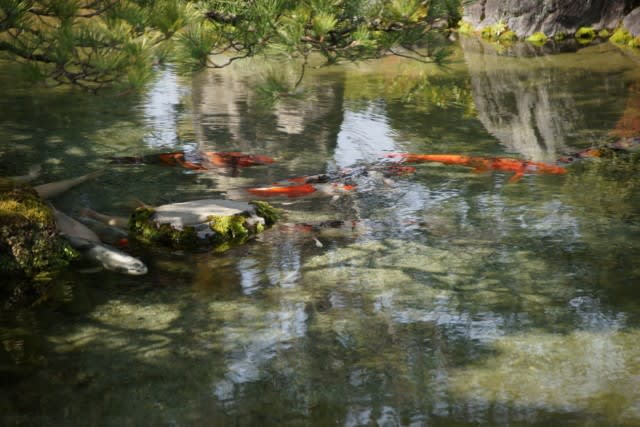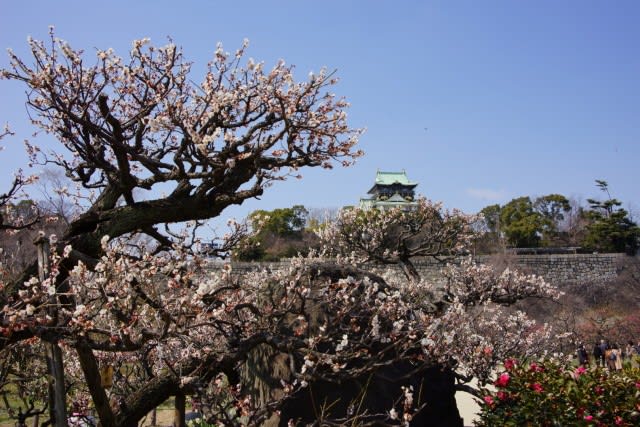The following is from an article I just discovered.
It is the original, so to speak, of Hiroshi Yuasa's article that appeared yesterday in the Sankei Shimbun.
It is a must-read not only for Japanese citizens but also for people worldwide.
https://jinf.jp/feedback/archives/37167
Stop the Sino-Russian Axis of "Power is Justice" Hiroshi Yuasa (Planning Committee Member and Senior Researcher, National Institute for Policy Studies)
When the Russian leader invading Ukraine uttered "nuclear intimidation," the world understood how dangerous a "wounded bear" could be.
In the nightmare of the fall of Kyiv, the Group of Seven (G7) industrialized nations united in confronting Russia, and the North Atlantic Treaty Organization (NATO) was drawn back to its original strategy of containment of Russia.
But only China, for its strategic interests, will not let go of its "new pivot" of Sino-Russian cooperation against the United States.
China knew in advance of the invasion.
The report in the New York Times (March 3) that Chinese officials had asked the Russian side in early February not to invade Ukraine until the end of the Beijing Winter Olympics was shocking.
The Western intelligence report on which the report is based suggests that Chinese authorities were aware of Russia's plans and intentions prior to Russia's invasion of Ukraine.
In "early February," Vladimir Putin flew to Beijing in the face of a Western diplomatic boycott of the Beijing Olympics.
He and President Xi Jinping would have put together an unusually long joint statement of 5,000 words, forming a new pivot point in which "China and Russia will defend each other's core interests.
China and Russia oozed out their view of the decline of the U.S., saying that "the world has become multipolar and there is a change in the distribution of power," indicating their recognition that they had entered a new era.
A decision by a dictator that the U.S. is "weak" will make it impossible to resist the temptation to see an opportunity to expand its own sphere of influence.
From the perspective of Western society, this can only be seen as the establishment of an "axis of evil" that aims to destroy the liberal international order.
President Putin, a cunning tactician, has worked with Defense Minister Shoigu and others to plan the independence of Donetsk and Lugansk oblasts in the Donbas region of eastern Ukraine, and has sent in Russian troops under the guise of protecting the Russian population.
This was the beginning of a full-scale invasion of Ukraine.
U.S. Interests are also diverted to Europe.
Since its founding, China's foreign policy has been based on the "Five Principles of Peace" set forth by then Premier Zhou Enlai, and has never supported infringement on the sovereignty of other countries or interference in their internal affairs.
It has also followed this principle in not recognizing Russia's 2014 annexation of the Crimean Peninsula.
Under President Xi Jinping, however, this principle is also in doubt.
He has blatantly pursued his territorial ambitions in the South China Sea and East China Sea, violated India's borders, and exerted air and sea pressure on democratically controlled Taiwan.
Territorial ambitions prevail over the principle of defending sovereignty.
Even if Ukraine is an economic partner that has invested heavily in the "One Belt, One Road" concept of the China Economic Circle, it is inclined to believe that China-Russia relations should be prioritized in terms of strategic importance in confronting the United States.
In order to bounce back against the U.S. and its allies who defend Taiwan, it is important to disperse their power from the "Asian front" in the Western Pacific to the "European front" in Eastern Europe.
Nevertheless, they are cleverly avoiding the tactic of going heart to heart with Russia as an accomplice in the invasion of Ukraine.
Initially, while accusing the West of stirring up the Russian threat, it switched to bland expressions of opposition to the invasion of Ukraine.
In a telephone discussion with Foreign Minister Lavrov on March 24, Wang Yi reiterated that "China consistently respects the sovereignty and territorial integrity of each country," while referring to Ukraine's historical background and saying, "We understand the reasonable concerns of the Russian side in security issues.
When China refused to call Russia's attack on Ukraine "aggression," a foreign journalist simply asked him if he supported aggression, and the spokesman expressed irritation at his own contradictory position, saying, "I dislike such a method of questioning.
Dictatorships that also renege on their promises.
Behind the scenes, China is buying Russian energy and wheat, leaving room for Russia to provide a way out, including access to China's sanctioned payment system.
As long as China will not let go of its partnership with Russia out of strategic interests, the free society must unite to confront China and Russia.
Japan is the only free nation adjacent to that Sino-Russian axis.
The lesson of the war in Ukraine for Japan, therefore, is to be prepared for a phase in which its documented commitments will become paper scraps as long as it is a resident of a world where dictatorships believe that "might is right.
The 1994 Budapest Memorandum of Understanding was a security promise made by the United States, Britain, and Russia to an independent Ukraine when the Soviet Union collapsed.
Accordingly, Ukraine returned all of its nuclear weapons to Russia by 1996.
Russia made this MOU a dead letter with its 2014 invasion of Ukraine. It was a betrayal by Putin.
If abandoning nuclear weapons is the time to be prepared to risk invasion by another country, then possessing nuclear weapons is the time to be free from the danger of invasion.
It is time for the Fumio Kishida administration to cooperate with Europe to set the defense budget to more than 2% of GDP and to promote discussions on either sharing nuclear weapons with the U.S. or developing nuclear weapons of its own.
Yoshiko Sakurai is truly a national treasure, a supreme national treasure as defined by Saicho.
https://jinf.jp/news/archives/37126
Opinion Ad] The Kishida Administration must make a major shift in national defense policy.
Ukraine's sovereignty is being trampled by Russian military force. We see the stark reality that we can only oppose an opponent who believes only in force.
Faced with the threat of Russia, Germany, a defeated nation like Japan, has decided to turn the tide against military power and drastically increase its defense spending to more than 2% of its gross domestic product (GDP). Switzerland, a country that is permanently neutral, Sweden, Finland, and Norway have also decided to provide arms and other aid to Ukraine.
Japan also faces the threat of China. In order to protect and defend Japan's sovereignty, the Constitution, which denies the right to belligerency and the right to keep and bear arms, must be amended. As a path to this end, we call on the Kishida administration to immediately address the following issues
Increase defense spending to at least 2% of GDP
Possess offensive capabilities, including intermediate-range missiles
Review the three non-nuclear principles, including the realization of "nuclear sharing" with the U.S.

















